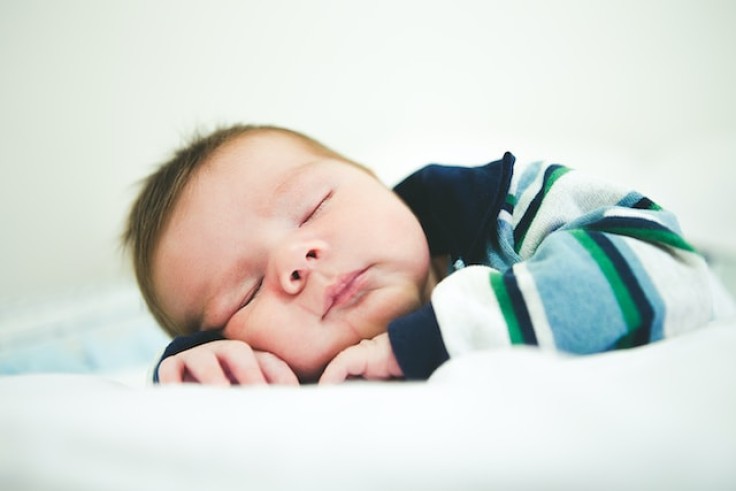
There's something undeniably heartwarming about hearing a newborn laugh, even more so when it happens in their sleep. Many parents have experienced the joy and curiosity of hearing their little ones giggle or chuckle while nestled in dreamland.
This phenomenon, while adorable, often leaves parents wondering about the reasons behind it. Is it a sign of a happy baby, or is there more to these nocturnal giggles? This article delves into the fascinating world of newborns and explores why they might be laughing in their sleep.
Understanding Newborn Sleep Patterns
To understand why newborns laugh in their sleep, it's essential to grasp their sleep patterns. Newborns spend a significant amount of time in REM (rapid eye movement) sleep, a phase associated with dreaming in adults. During REM sleep, babies are more likely to exhibit movements, facial expressions, and sounds, including laughter.
Sleep laughter, or 'hypnogely', is not fully understood, but it's believed to be a reflex rather than a response to dreams, as is often the case with adults. Since the part of the brain that processes humor is not yet developed in newborns, their laughter is more likely a spontaneous reaction of the developing nervous system.
Emotional Development and Sleep Laughter
Some researchers suggest that sleep laughter might be a baby's way of developing social and emotional skills. Even though it's a reflex, it could be an early form of practicing social interactions. Laughing in sleep might be a sign that the baby is developing normally and healthily in terms of emotional capabilities.
Common Triggers for Sleep Laughter
- Physical Reflexes: In the early stages of life, babies' bodies are constantly developing and adapting. Reflexes, including those that trigger laughter, are part of this development.
- Dreaming: While it's hard to say if newborns dream like adults, the brain activity during REM sleep might produce dream-like sequences that could trigger laughter.
- Comfort and Contentment: A comfortable and content baby is more likely to exhibit positive expressions, even in sleep. This could manifest as a smile or a soft giggle.
When To be Concerned
In most cases, a laughing newborn is not a cause for concern. However, if the laughter is accompanied by other unusual symptoms, like difficulty breathing, it's advisable to consult a pediatrician. It's always better to err on the side of caution when it comes to the health and well-being of your baby.
Tips for Parents
- Observe Sleep Patterns: Keeping an eye on your baby's sleep patterns can help you understand their normal behaviors and identify any changes.
- Create a Comfortable Sleep Environment: Ensuring your baby is comfortable can promote peaceful sleep and positive sleep behaviors like laughter.
- Record These Moments: If you happen to catch your baby laughing in their sleep, consider recording it. These are precious moments that you can cherish and share with your child when they're older.
A newborn laughing in their sleep is a delightful and heartwarming experience for any parent. While it's mostly a reflexive action, it's a sign of a baby's developing brain and emotional growth. As long as your baby is healthy and showing no signs of discomfort, there's nothing to worry about.
Enjoy these sweet moments and take comfort in the knowledge that your little one is growing and thriving, even in their sleep.
Related Article : How to Keep a Safe Sleeping Space for Your Baby